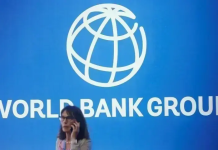ISLAMABAD, SEPT 20 /DNA/ – The All Pakistan Business Forum (APBF) has welcomed the landmark Strategic Mutual Defense Agreement between Pakistan and Saudi Arabia, calling it a historic step that will not only bolster security but also unlock unprecedented opportunities for trade, investment, and industrial growth.
In a joint statement, APBF President Syed Maaz Mahmood and Chairman Ibrahim Qureshi lauded the government’s commitment to strengthening ties with the Kingdom of Saudi Arabia, describing the pact as a “game-changer” for Pakistan’s economic and geopolitical landscape. They hailed the leadership of Field Marshal, Chief of Army Staff General Asim Munir, for his strategic vision and tireless efforts in ensuring that Pakistan’s defense cooperation is seamlessly aligned with long-term economic stability.
Syed Maaz Mahmood said that the agreement, signed with the full endorsement of Prime Minister Muhammad Shehbaz Sharif and Saudi Crown Prince Mohammed bin Salman, reflects the depth of brotherhood and trust between the two nations. He noted that the pact’s central provision—that aggression against one country will be considered aggression against both—is not just a military guarantee but a foundation of investor confidence, creating a climate where capital inflows, joint ventures, and foreign direct investment can thrive without fear of instability.
“Economic prosperity is impossible without security, and this defense agreement is essentially a shield for our economy. It reassures international investors that Pakistan is a safe and dependable destination for their ventures,” Mahmood observed. He added that the business community sees this accord as a model of ‘security-for-economic stability’ that will pave the way for enhanced cooperation in energy, infrastructure, technology, and trade.
APBF Chairman Ibrahim Qureshi underscored that Saudi Arabia is already Pakistan’s largest source of remittances, with over 2.5 million Pakistanis working in the Kingdom and contributing to both economies. “This agreement will consolidate that bond and encourage new bilateral projects in construction, oil refining, renewable energy, and industrial manufacturing. It also opens the possibility of joint special economic zones where Saudi investment and Pakistani expertise can create value-added exports,” he said.
Qureshi credited COAS General Asim Munir’s leadership for steering Pakistan through turbulent regional dynamics and ensuring that defense cooperation translates into tangible economic dividends. “The Field Marshal’s vision has been to integrate national security with economic security. This agreement is proof of his statesmanship, as it provides Pakistan with the geopolitical leverage to attract not just Saudi capital but also investment from other Gulf states and global partners who value regional stability,” he added.
Maaz Mahmood pointed out that Saudi Arabia’s ambitious Vision 2030 plan offers Pakistan an unparalleled opportunity to align its export industries with the Kingdom’s diversification strategy. From food security to IT services, from skilled labor to industrial technology, Pakistan can be a natural partner in Saudi Arabia’s transformation, provided the right policies are implemented at home.
He expressed full confidence in the Special Investment Facilitation Council (SIFC), which they said has already delivered tangible results, including the approval of Balochistan Bank and a series of reforms aimed at simplifying investment procedures. “With the defense agreement as a backbone of trust, the SIFC can now attract Saudi investors with confidence that their investments will be protected and supported at the highest level,” Mahmood stressed.
Maaz Mahmood urged the Pakistani private sector to prepare itself for this new era of opportunity by upgrading capacity, ensuring compliance with international standards, and building partnerships with Saudi firms. “The days of short-term thinking are over. This agreement is a strategic guarantee of peace, and it is our responsibility to convert that peace into prosperity for our people,” Qureshi remarked.
Calling the pact a “defining moment,” the APBF president said that Pakistan stands at the threshold of economic revival. They emphasized that unity between government, military leadership, and business community is essential to maximize the dividends of this agreement. “This is more than just a defense pact; it is a roadmap for shared growth, stability, and regional influence. And for that, the credit goes to the visionary leadership of Field Marshal, Chief of Army Staff General Asim Munir, who has proven once again that Pakistan’s strength lies in the harmony of its security and economy.”

















